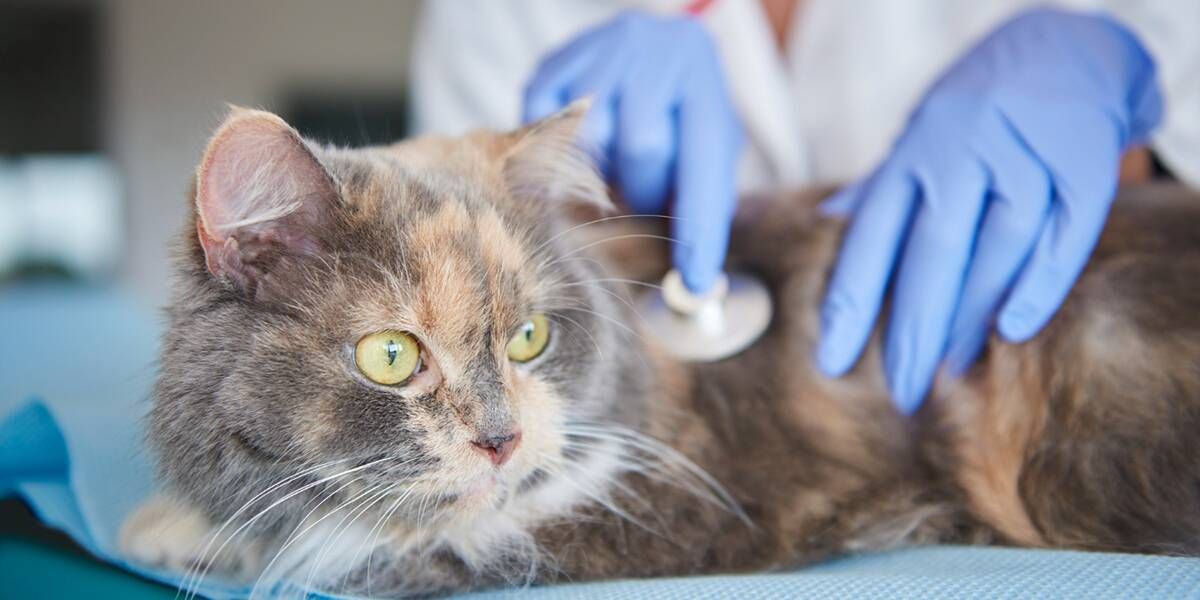
What Causes Kidney Failure in Cats?
Your cat’s kidneys play a vital role in its health. The kidneys create red blood cells, produce hormones, regulate blood pressure, and filter waste. When these organs fail, your cat may have few treatment options.
So what causes kidney failure in cats? As Tucson’s trusted veterinarian, our team at Santa Cruz Veterinary Clinic explains the types of kidney disease in cats, their causes, and the common symptoms of renal failure. Call us at (520) 889-9643 for an examination and to learn how to care for your feline companion if its kidneys fail.
Types of Kidney Failure
Cats can suffer from two types of kidney failure, also called renal failure: acute and chronic:
- Acute kidney failure stems from sudden damage to the organs. Veterinarians can treat acute kidney failure with some success, but this illness ends up being terminal in half of all cases.
- Chronic kidney disease causes cats to lose their kidney tissue gradually. Over time, this leads to end-stage renal failure with limited treatment options. Chronic kidney failure can occur depending on your cat’s age, genetics, and underlying medical conditions.
What Causes Kidney Failure in Cats?
There are different causes of kidney disease in cats. Sudden trauma to the system can damage kidney functions and lead to acute kidney failure. Common causes of acute kidney failure in cats include ingesting poison or contracting bacterial infections that spread throughout a cat’s system.
Chronic kidney disease can stem from cancer, urinary tract blockages, congestive heart failure, tick-borne illnesses, and parasitic infections, among other medical conditions. Your cat’s kidneys deteriorate with age, so senior cats are at a higher risk for chronic kidney disease. Acute renal failure can progress into chronic kidney failure.
Symptoms of Kidney Failure
Kidney failure can present several symptoms in cats. These include:
- Dehydration
- Decreased appetite
- Vomiting
- Lethargy
- Seizures
- Diarrhea
- Uncontrollable urination
- Ammonia-like odor in the breath
If your cat exhibits any of these symptoms, bring them to a veterinarian for testing. Doctors will perform bloodwork, urine tests, and imaging to diagnose your cat.
How to Treat Kidney Disease in Cats
The treatment options available to cats with renal failure depend on the type of kidney disease and its severity. Acute kidney failure can be reversible if you identify it and treat it early enough. Alterations to your cat’s diet, medications, IV fluids, and surgery are common treatment options.
If your cat suffers from chronic kidney disease, your veterinarian will come up with a kidney disease treatment plan depending on its medical history. Your vet will target the underlying cause of kidney disease, treat symptoms, and try to slow the loss of kidney function. Treatment cannot stop the progression towards end-stage renal failure but instead slow it down so your cat can enjoy more time with you.
Seek Treatment for Cats With Kidney Failure
Now that you understand what causes kidney failure in cats and the symptoms, monitor your pet for any sudden health changes. Whether your feline companion suffers from kidney failure or other common cat illnesses, bring them to Tucson’s most trusted veterinarian. Contact Santa Cruz Veterinary Clinic at (520) 889-9643 to schedule an appointment.
